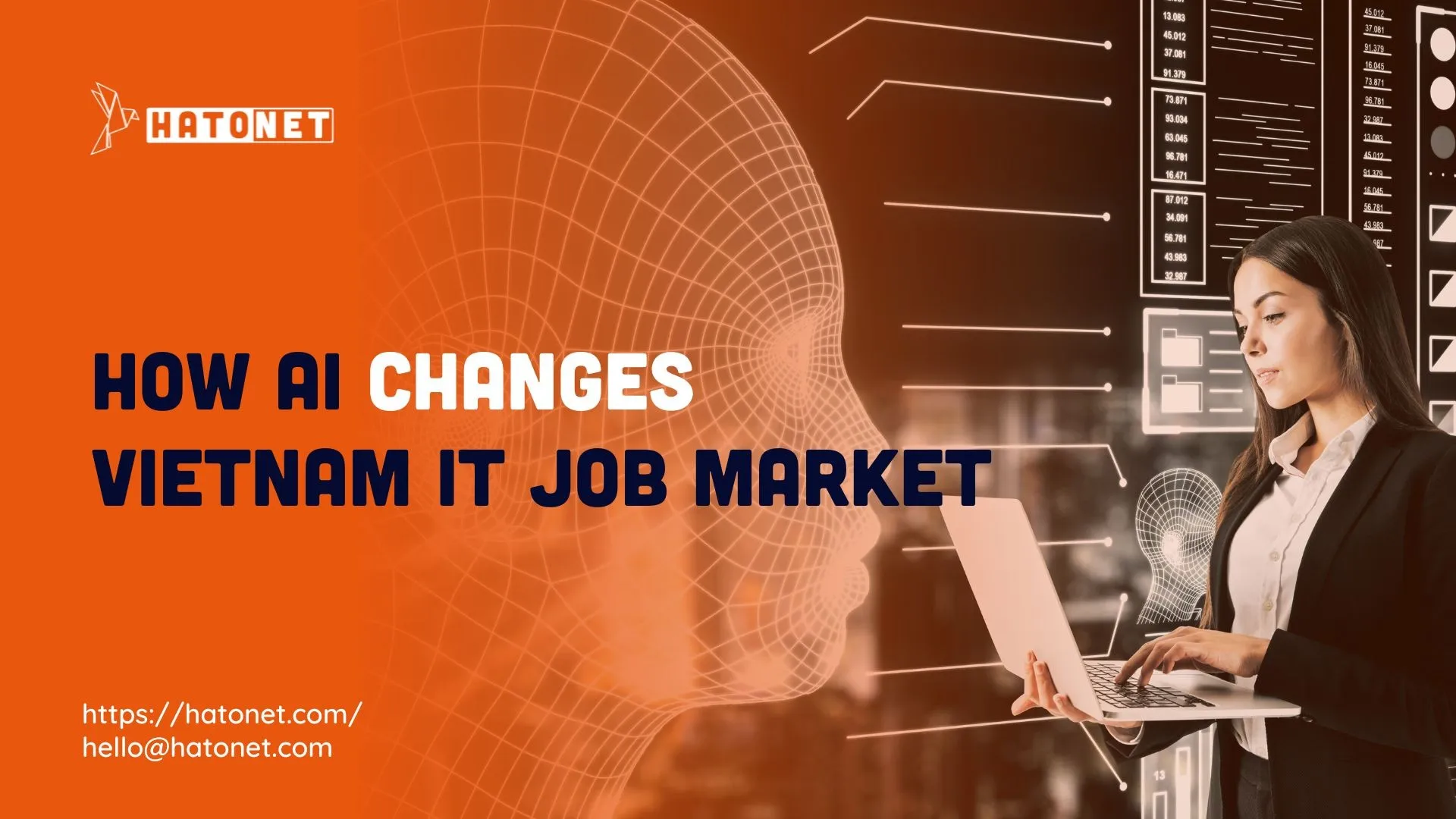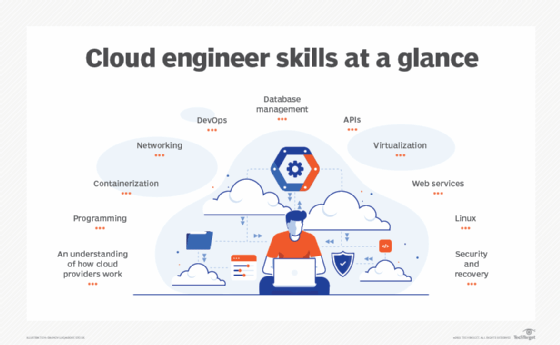How AI changes Vietnam IT job market

Vietnam has emerged as one of the fastest-growing technology hubs in Southeast Asia, with its IT industry experiencing rapid expansion over the past decade. The government's focus on promoting digitalization and innovation, coupled with a young and tech-savvy population, has contributed to the sector's robust growth.
The IT industry in Vietnam encompasses a wide range of activities, including software development, hardware manufacturing, IT services, and digital transformation across various sectors. The country has also become increasingly attractive to multinational corporations seeking to outsource IT services and establish offshore development centers.
1. Major Sectors and Key Players:
a. Software Development: Vietnam has gained recognition as a leading destination for software outsourcing, particularly in areas such as mobile app development, web development, and software testing. Major Vietnamese software companies include FPT Software, TMA Solutions, and Viettel Solutions.
b. IT Services: The demand for IT services such as cybersecurity, cloud computing, and IT consulting is on the rise in Vietnam. Both domestic companies and multinational firms are actively engaged in providing these services. Key players in this sector include CMC Corporation, BKAV, and Viettel IDC.

c. Hardware Manufacturing: While software development dominates the IT industry, Vietnam also has a growing hardware manufacturing sector, producing electronics, semiconductors, and telecommunications equipment. Samsung Electronics, Intel Corporation, and Foxconn are among the major players with operations in Vietnam.
d. Digital Transformation: Various sectors, including banking and finance, healthcare, education, and manufacturing, are undergoing digital transformation initiatives. Vietnamese companies such as Techcombank, Vingroup, and Masan Group are investing heavily in technology to drive innovation and improve efficiency.
2. Existing Job Roles and Skill Requirements:
a. Software Developer/Engineer: Software developers are in high demand across different domains, including web development, mobile app development, and enterprise software development. Key skills include proficiency in programming languages such as Java, Python, C++, and JavaScript, as well as experience with relevant frameworks and technologies.
b. Data Scientist/Data Analyst: With the increasing emphasis on data-driven decision-making, the demand for data scientists and data analysts has surged. These professionals are responsible for collecting, analyzing, and interpreting data to derive actionable insights. Skills in data analysis, machine learning, statistical modeling, and programming are essential for roles in this field.

c. Cybersecurity Specialist: As cyber threats continue to evolve, cybersecurity specialists play a critical role in safeguarding organizations' digital assets and infrastructure. Skills in network security, penetration testing, threat detection, and incident response are highly valued in this field.
d. IT Project Manager: IT project managers oversee the planning, execution, and implementation of IT projects, ensuring that they are completed on time, within budget, and according to specifications. Strong leadership, communication, and project management skills are essential for this role, along with technical expertise in relevant technologies.
e. Cloud Computing Engineer: With the increasing adoption of cloud computing services, there is a growing demand for professionals skilled in cloud architecture, deployment, and management. Certifications from cloud service providers such as AWS, Microsoft Azure, and Google Cloud Platform are highly regarded in this field.

The Rise of Artificial Intelligence in Vietnam
Artificial intelligence (AI) has emerged as a transformative force in Vietnam, revolutionizing industries and driving innovation across the country. With a burgeoning tech ecosystem and a growing pool of talent, Vietnamese companies are increasingly embracing AI technologies to enhance efficiency, improve decision-making, and unlock new growth opportunities. In this section, we'll delve into the adoption of AI technologies by Vietnamese companies, the integration of AI across different industries, and the government's initiatives to support AI development.
1. Adoption of AI Technologies by Vietnamese Companies:
In recent years, there has been a significant uptick in the adoption of AI technologies by Vietnamese companies, ranging from startups to large enterprises. These technologies encompass machine learning, natural language processing, computer vision, and robotics, among others. Companies are leveraging AI to automate repetitive tasks, optimize processes, and gain actionable insights from vast amounts of data.
a. Startups: Vietnam's startup ecosystem is buzzing with AI-driven innovations, with numerous startups specializing in AI solutions for various industries. These startups are disrupting traditional business models and addressing real-world challenges with AI-powered products and services.
b. Enterprises: Large enterprises in Vietnam are also investing in AI technologies to stay competitive in the digital age. From banks and financial institutions to manufacturing firms and healthcare providers, companies across sectors are exploring AI-driven solutions to streamline operations, improve customer experience, and drive business growth.
c. Government Agencies: Government agencies in Vietnam are increasingly recognizing the potential of AI to enhance public services and governance. Initiatives such as smart city projects, AI-powered traffic management systems, and e-government platforms are being developed to leverage AI technologies for the benefit of citizens.
2. Integration of AI in Various Industries:
AI is permeating various industries in Vietnam, transforming business processes and unlocking new opportunities for innovation. Some key sectors where AI is making significant inroads include:
Finance: In the finance sector, AI is being used for fraud detection, risk management, algorithmic trading, and personalized customer services. Banks and financial institutions are leveraging AI-powered analytics to make data-driven decisions and enhance operational efficiency.

Healthcare: AI is revolutionizing healthcare delivery in Vietnam, with applications ranging from medical imaging and diagnostics to predictive analytics and personalized medicine. AI-powered tools are enabling healthcare professionals to improve patient outcomes, optimize resource allocation, and drive medical research and innovation.

Manufacturing: The manufacturing sector in Vietnam is embracing AI technologies to enhance productivity, quality control, and supply chain management. AI-driven automation, predictive maintenance, and smart manufacturing systems are enabling manufacturers to optimize production processes and reduce costs.

Agriculture: In the agricultural sector, AI is being used for crop monitoring, precision agriculture, and predictive analytics. AI-powered solutions help farmers optimize resource utilization, improve crop yields, and mitigate risks associated with weather variability and pest outbreaks.

3. Government Initiatives and Support for AI Development:
The Vietnamese government has been proactive in promoting AI development and fostering an enabling environment for innovation. Key initiatives and measures include:
National AI Development Strategy: The Vietnamese government has formulated a national strategy to promote AI research, development, and adoption across sectors. The strategy aims to harness AI technologies to drive economic growth, improve social welfare, and enhance national competitiveness.
Funding and Incentives: The government provides funding support, grants, and tax incentives to AI startups and research institutions to spur innovation and entrepreneurship in the AI ecosystem. These initiatives help catalyze investment in AI technologies and foster collaboration between the public and private sectors.
Education and Talent Development: The government is investing in AI education and talent development initiatives to build a skilled workforce capable of driving AI innovation and implementation. Universities and research institutions receive support to offer AI-related courses, training programs, and research opportunities.
Regulatory Framework: The government is working to develop a regulatory framework to address ethical, legal, and privacy concerns related to AI adoption. Clear guidelines and regulations help promote responsible AI deployment and protect the rights and interests of stakeholders.
In conclusion, the rise of artificial intelligence is reshaping the business landscape in Vietnam, driving digital transformation, and fueling innovation across industries. With robust government support, growing entrepreneurial activity, and a burgeoning tech ecosystem, Vietnam is well-positioned to harness the potential of AI and emerge as a regional leader in AI development and adoption.
Hatonet kết nối doanh nghiệp ITO toàn cầu.
Giúp các doanh nghiệp IT Việt Nam tiết kiệm chi phí,tìm kiếm
đối tác,mở rộng mạng lưới.
- Mở rộng kênh tìm kiếm khách hàng gia tăng doanh thu.
- Tiết kiệm chi phí quan hệ tìm đối tác.
- Ứng tuyển trực tuyến bất cứ lúc nào khi có yêu cầu.
- Trực tiếp liên kết với công ty quốc tế
Liên hệ :
Email: hello@hatonet.vn
Zalo: https://zalo.me/hatonet

